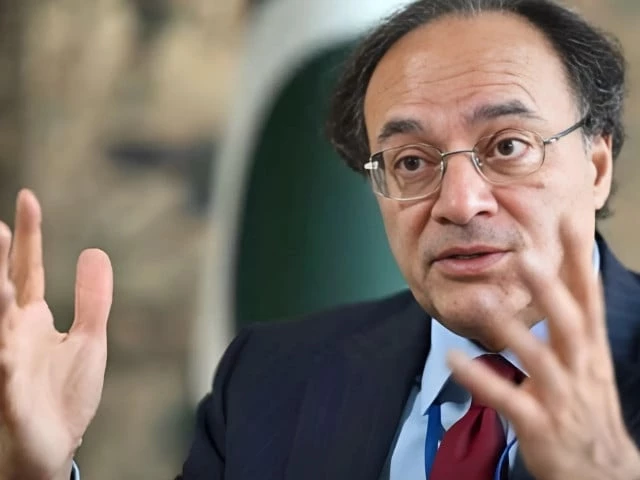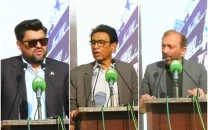'No magic wand,' Aurangzeb on economic challenges
Finance minister assures government efforts are yielding results, with interest rates expected to reach single digits.

Finance Minister Muhammad Aurangzeb has acknowledged the numerous economic challenges facing the country, stating that there is no "magic wand" to resolve issues overnight.
However, he assured that government efforts are yielding results, with inflation reduced to around 5% and interest rates expected to reach single digits in the near future.
Addressing a press conference in Kamalia, Punjab, Aurangzeb said, “The country's problems are immense, and there is no instant solution. However, we are committed to ensuring economic stability. Interest rates, currently high, are being brought down to a more business-friendly level, which will have a positive impact on the economy."
He emphasised that reducing interest rates further from 23-24% to 8-9% would significantly ease the burden on businesses and encourage growth.
Criticising the outdated budget-making process, Aurangzeb remarked, “Our system is flawed. People come to Islamabad for two to three months, some of their concerns are addressed, while others are ignored.
During this time, the country essentially comes to a standstill. We plan to change this by directly engaging with the business community and encouraging them to focus on their operations.”
Aurangzeb outlined the government's vision for sustainable economic growth by 2025, highlighting the challenges of being an import-dependent economy. “Increased imports deplete dollar reserves, creating balance of payment issues and forcing us to rely on the IMF repeatedly. We are working to transition to a growth model driven by exports,” he explained.
Aurangzeb stressed the need to increase the tax-to-GDP ratio, which currently stands at 9-10%. “Countries are not run on charity but on taxes. Reforms are underway to expand the tax base and bring more sectors under the tax net,” he stated.
He noted that the salaried class has borne a disproportionate burden due to inefficiencies in the tax system. “The salaried class cannot bear any further increase in taxes. We are bringing other sectors into the tax net to ensure a fair distribution of the tax burden. Everyone will need to contribute,” he said.
Aurangzeb urged political and economic stakeholders to come together for the nation’s progress. “For the sake of the country and the economy, we must unite under a charter of economy. If the country prospers, we all prosper,” he concluded.
The minister reiterated the government’s commitment to addressing structural issues and achieving long-term economic stability, calling for patience and collaboration.



















COMMENTS
Comments are moderated and generally will be posted if they are on-topic and not abusive.
For more information, please see our Comments FAQ